KARACHI: If there is a universal truth in Hollywood, it is that if Christopher Nolan's name is attached to a project, we can expect great things from it. So naturally, there is quite a bit of excitement surrounding his most recent movie Oppenheimer. With a star cast including Cillian Murphey, Emily Blunt, Robert Downey Jr, Matt Damon, Rami Maleck and Florence Pugh to name a few, the biographical thriller is not one to miss. But what is it about? The movie is based on the story of the “Father of the atomic bomb” Julius Robert Oppenheimer. Here is all that you need to know about him!
The Child Prodigy
Julius Robert Oppenheimer was the son of German Jewish immigrants. He graduated summa cum laude from Harvard University and then went on to study theoretical physics from both Cambridge and the University of Göttingen in Germany, where he gained his doctorate at age 23.
Oppenheimer, during his studies, was in the company of some of the greatest names in science but he also made quite the name for himself with his academic work advanced quantum theory which predicted theories on black holes in space.
His prominence in the scientific fraternity also shone light on him on a Governmental level.
The Manhattan Project
This is where the story of Oppenheimer and his life really kicked off. During World War II, after America formally sided with the Allies, Oppenheimer was asked to be a part of the top secret Manhattan Project whose main aim was to develop an atomic bomb in 1941.
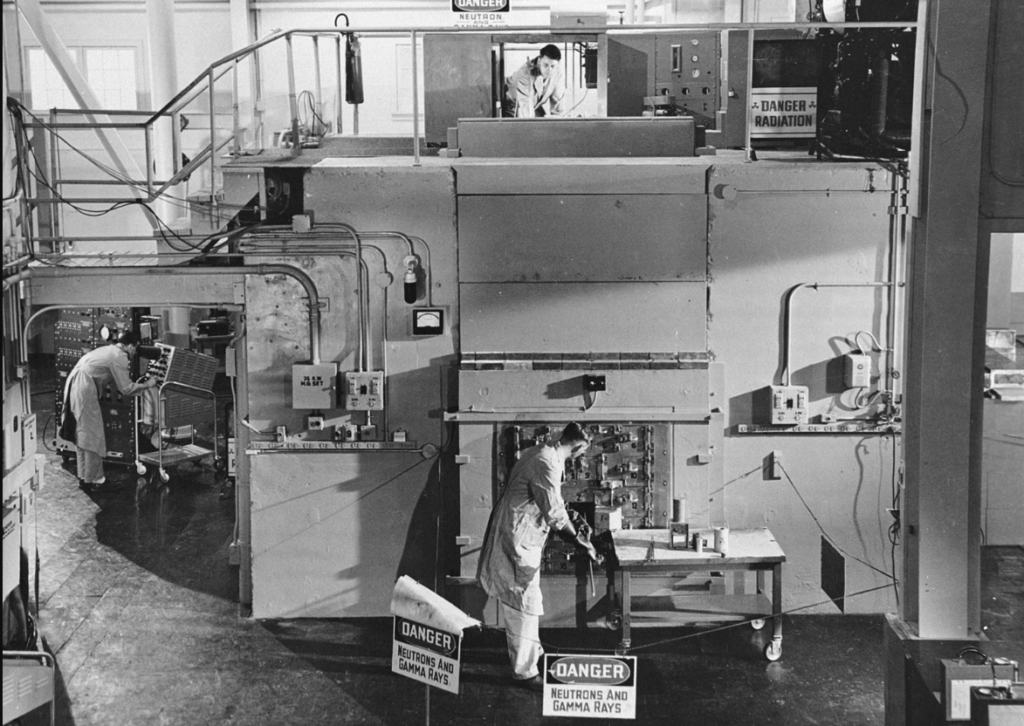
He began working on trying to figure out the kind of neutron-chain reaction needed to create a nuclear explosion and what would trigger and sustain the reaction. While at the task, he also managed to convince other prominent names in the fraternity to join him in his work. By 1942, the US Army tasked Oppenheimer with heading the secret lab where the bomb would be tested. He was in charge of overseeing hundreds and then thousands of workers at what became to be known as the Los Alamos Laboratory.
By 1945, Oppenheimer and his peers had managed tp produce the world’s first nuclear weapon.
The Trinity Test
Although, by the time the bomb had been developed the war was over, but there was another threat looming on the United States of America and that was Japan. Those behind the Manhattan Project believed that the bomb would be used as a means to threaten Japan into surrendering.
On July 16, 1945, Oppenheimer and his peers gathered at the Trinity Test site where the test was a success. Naturally, this was a major win in the story of Oppenheimer, though there have been accounts of two varying reaction from the man himself. Upon the success of the test, it was reported (and later said on TV by Oppenheimer) that he quoted a line from the Hindu Bhagavad Gita which said, “Now I am become Death, the destroyer of worlds.”
But Oppenheimer was also very proud of his success. His colleague Isidor Rabbi said, “I’ll never forget his walk; I’ll never forget the way he stepped out of the car, his walk was like High Noon, this kind of strut. He had done it.”
The Bombing of Japan
August of 1945 marked the total devastation inflicted on Japan by America. On the 6th and 9th of August, the USA dropped two of the bombs Oppenheimer helped develop which obliterated Hiroshima and Nagasaki, killing over 110,000 people and destroying the two cities on a scale of devastation never seen before.
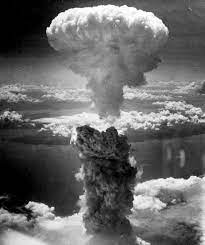
It is said that on the evening of the first bombing, Oppenheimer had taken to the stage at Los Alamos and as the crowd cheered, he clasped his hands together “like a prize-winning boxer” and also expressed his regret that the weapon had not been available in time to use against Nazi Germany.
However, three days later, his joy turned into devastation as the second bomb dropped. And that marked the fall and end of the Oppenheimer story.
Stance Against Nuclear Weapons and the Hydrogen Bomb
Oppenheimer was distraught over the civilian causalities as a result of the bombings and began lobbying against the use of nuclear weapons. A few weeks after the bombings, Oppenheimer wrote to the Secretary of War warning that “the safety of this nation cannot lie wholly or even primarily in its scientific or technical prowess. It can be based only on making future wars impossible.”
On August 17, he traveled to Washington to deliver a letter to the Secretary of War which expressed his wish to see nuclear weapons banned. In October, he was allowed an interview with President Harry Truman during which Oppenheimer confessed he felt like he had “blood on my hands.” This angered the President who cut the meeting short and later said, “I don’t want to see that son-of-a-bitch in this office ever again.”
As America began what came to be known as the Cold War against the USSR, there was panic when it was revealed that the communist state was developing their own nuclear weapons. America scrambled to create an even more powerful bomb, the Hydrogen Bomb, but Oppenheimer wanted no part in it. Instead, he believed that nuclear power should have been utilized in more useful areas like generating power.
Communist Ties and Downfall
Oppenheimer’s refusal to assist in the development of the Hydrogen bomb gained him political enemies and soon a campaign of scrutiny began against him. When he was tasked with the Manhattan Project, there was a bit of shock over his appointment because of his left wing ideologies.
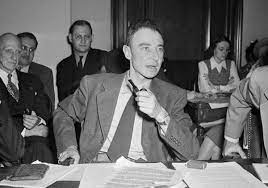
These ideologies came to light again in 1954 when a hearing took place looking into his supposed Communist sympathies. He had confessed that his students, whom he was close to, had communist ties. His brother and wife also admitted to having been part of the Communist Party USA. Despite the fact that many top scientists, government and military figures all testified on Oppenheimer’s behalf, his security clearance was revoked (although it was reinstated in 2022).
Had his clearance not been revoked, he would have come to be known as a whistleblower who called out his scientific colleagues to save himself.
Later Years and Death
The Oppenheimer story saga didn’t have a happy ending. He retreated from the public sphere following his ostracization by the government, though, later on there was political rehabilitation between Oppenheimer and the later governments. However, Oppenheimer never returned to government service, instead founding the World Academy of Arts and Sciences and lecturing on science and ethics until his death in 1967.
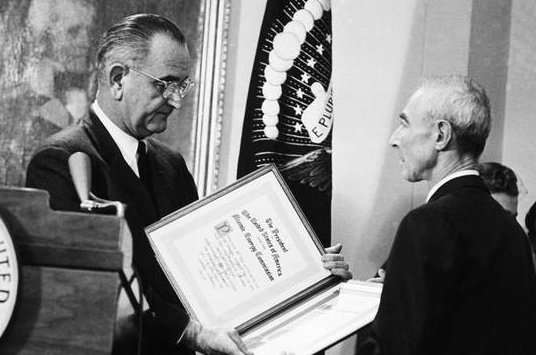

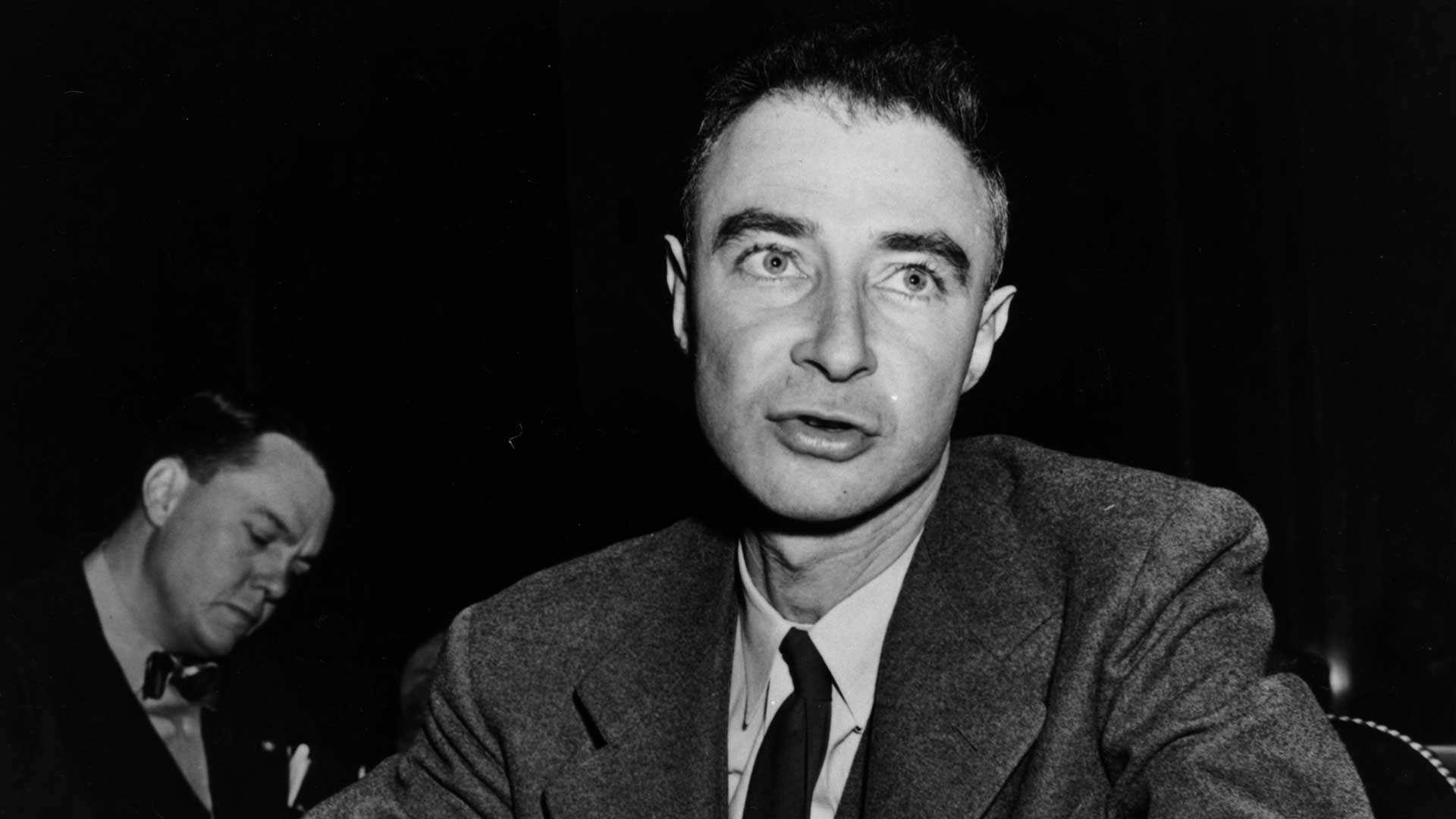 Source: https://www.history.com/news/j-robert-oppenheimer-facts-father-of-the-atomic-bomb
Source: https://www.history.com/news/j-robert-oppenheimer-facts-father-of-the-atomic-bomb











